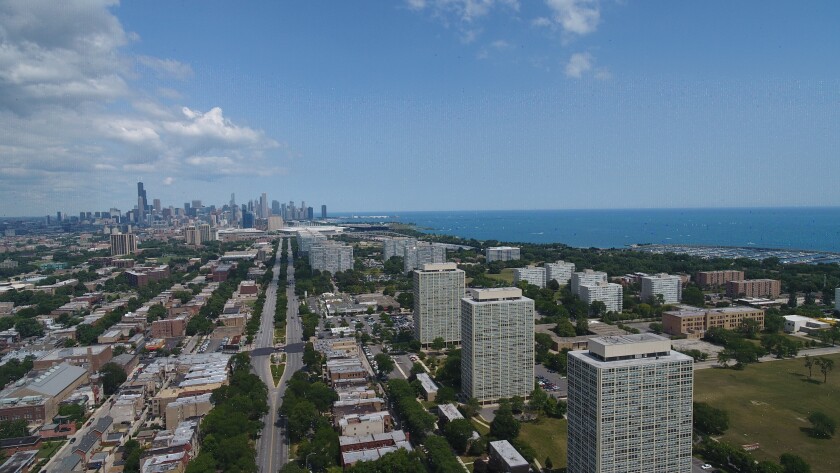Elsewhere in the city, however, there was Citizens Trust Bank and that’s where Render’s grandparents took him at a young age to open an account. He would later bring his own kids to open their own accounts at Citizens Trust, the nation’s oldest FDIC-insured Black bank.
“That’s where most Black kids in Atlanta would start their first banking experience,” Render said.
CTB has been a fixture of Atlanta for more than a century, but many of its peers haven’t been as resilient. The number of Black-owned banks has dwindled dramatically since 2001 — from 48 FDIC banks to 20 now. The rapid decline, largely attributed to the Great Recession’s disproportionate effect on minority communities, prompted a wave of Atlanta leaders to try to evolve and support Black-ownedfinancial institutions.
Among them is Render, a co-founder of the fintech Greenwood, which has opened nearly 102,000 accounts since it launched last year. Named after the Black business district destroyed in the 1921 Tulsa Race Massacre, the company’s other founders include former Atlanta Mayor Andrew Young and businessman Ryan Glover. It manages more than $10 million in assets.
The scope of Black banks may have decreased over past decades, but Armond Davis, the managing partner of The Paragon Group, said their mission and necessity have not changed. He intends for his venture capital firm to help fill the void by investing in minority- and women-owned small businesses.
“Historically, the Black-owned banks have served as accelerators, the catalyst, for up-and-coming entrepreneurs in the community,” Davis said.
Atlanta’s rich history as a financial hub for African Americans has kept the Peach State the center of the Black banking world. Of the nation’s 20 FDIC-insured Black banks, four are based in Georgia. Former White House advisor Ashley Bell said that’s no accident.
“It speaks to Atlanta being the center of gravity for Black innovation,” he said.
The Freedmen’s Bureau was the predecessor to all Black banks.
Established in 1865 during the last months of the Civil War,the bureau and its associated bank, the Freedman’s Savings and Trust Company, helped provide financial services to former slaves and poor white southerners.
However, the bank could not issue credit, which Bell said impaired its effectiveness.
“Credit is like water,” he said. “Places where credit flows, things grow.”
Patrick Washington, a finance professor at Morehouse College, said the Freedman’s bank was a force for positive change at the time, but its demise in the 1870s — because of subpar funding and political strife — has had a longtime negative affect.
The FDIC reports that 11 percent of Black households are underbanked, compared to 2 percent of white households.
“Overall, the Black community may have some sense of distrust with banks due to the original first Black bank, the Freemen’s bank, going bankrupt,” Washington said.
Private Black banks would later emerge to provide African Americans with access to credit, attempting to help families afford homes and launch businesses.
Herman J. Russell, the Atlanta icon whose namesake construction company helped define the city’s skyline, saw Black banks as critical to financing his projects, according to his son Michael B. Russell. His father was a CTB investor in the 1970s and eventually served as the bank’s board chair.
Michael B. Russell, the current CEO of H.J. Russell & Co., said hard economic times often hit Black communities disproportionately.
“Black businesses are usually more fragile than a lot of other businesses,” he said. “Any kind of hiccup in the economy creates a bigger tremor in the Black community. Black banks are part of that, too.”
While Atlanta still has a national foothold on the Black banking space, Bell said it could continue to shrink if Black banks don’t adjust to the times and offer the same technology services as other institutions.
“The perception is that they won’t get the same services, and I know that every Black bank is trying to defeat that perception,” Bell said.
Render, the Greenwood co-founder, said younger generations rarely visit physical banks and instead manage their money from their phones. He said Black banks and fintechs — those financial technology companies using mobile or online platforms — need to evolve their technology while remaining mission-driven.
He said Greenwood’s acquisition last year of The Gathering Spot, a popular networking hub and workspace frequented by young Black professionals, helps further the mission of African American financial independence.
Render said integrating business development into banking will help startups grow.
“We can grow more Big Dave’s Cheesesteaks. We can grow from Slutty Vegans. We can grow more SWAG Shops,” he said of prominent Black-owned Atlanta businesses.
“We can grow more things out of communities that people may not understand, but we understand.”
©2023 The Atlanta Journal-Constitution.Distributed by Tribune Content Agency, LLC.
Related Articles












